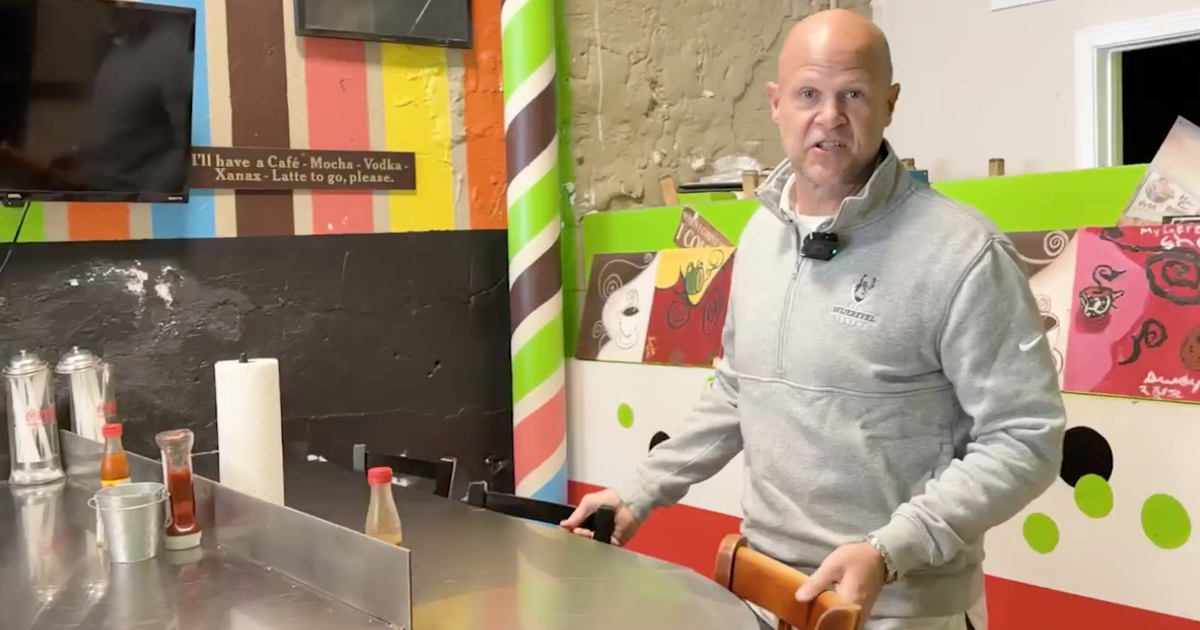Bay Area Firm Targets Food Allergies By Introducing Allergens To Infants
MENLO PARK (KPIX 5) -- A new approach to protecting children from developing food allergies involves introducing infants to the most common substances that can cause life-threatening reactions.
Every night, six-month-old Grayson Breckenridge gets a special new powder mixed into his dinner.
He's actually slurping up tiny bits of stuff that can cause the most severe, life-threatening food allergies in susceptible children.
Grayson's mom hopes her little boy will never develop a food allergy by being exposed to the allergens very early. This may sound like a wild and crazy idea, but there's actually good science behind it.
"The idea is that their little bodies are starting to be exposed to these potential allergies, earlier on in their systems and therefore won't develop allergic reactions at a later date," said Amanda Breckenridge. "So when I think about it, there's no way I could get all those proteins in his diet every single day."
The product she uses is called SpoonfulOne, made by Menlo Park-based Before Brands.
Parents mix the daily dietary supplement powder with food, once a day. It's made up of proteins found in 16 foods including peanuts, milk, eggs, soy, wheat, fish and nuts.
Breckenridge decided to try SpoonfulOne after seeing her sister's kids deal with serious food allergies.
"I've seen them go through anaphylactic shock," she said. "I've seen how hard it is for her to order food at restaurants."
Before Brands believes this method of introducing babies as young as four months old to foods that are responsible for 90 percent of food allergies will reduce a healthy child's risk of developing allergies to those foods.
CEO and co-founder Ashley Dombkowski comes from the biotech industry and partnered with a Stanford University pediatrician who did groundbreaking research on the method. The university patented and licensed the product to the startup.
It is backed by Silicon Valley heavy-hitters including LinkedIn CEO Jeff Weiner and 23andMe CEO Anne Wojcicki.
"When I found this technology and realized that we could bring something to get ahead of the problem versus being reactive, you know the idea that before is better than after, proactive is better than reactive. It felt like an amazing opportunity to bring all this biology directly to families," explained Dombkowski.
More than 15 million Americans have food allergies; six million of them are children. Meanwhile, doctors are seeing a 50 percent increase in the number of food allergies among children in the last few decades.
"In the patented data behind SpoonfulOne, there is some evidence, ultimately, that diversity - so all those foods at once - might really grow a happier immune system, one that is more tolerant over time," explained pediatrician Wendy Sue Swanson, chief medical officer of Before Brands.
And with that, says Swanson, comes food freedom.
Swanson points to a study, published in the New England Journal of Medicine, that found eating peanuts from a very young age can stop the development of a peanut allergy in high-risk babies. A second study called EAT, also published in the New England Journal, found introducing tiny bits of several allergenic foods all at once to infants, was safe. However. since the powder is a dietary supplement, parents should take note.
"SpoonfulOne is not a medicine, it's not a drug, so it's regulated differently by the FDA," said Swanson.
Supplement makers don't have to prove their product is either safe or effective before it goes to market. Even so, SpoonfulOne took an extra step and funded an independent study involving 700 infants. The study showed no adverse events.
As to whether it will prevent a healthy child from ever developing a food allergy, the science is not yet proven. SpoonfulOne has plans to follow infants over time.
At $2 to $3 a day for the powder packets, or about $913 a year, Breckenridge told KPIX 5 that it's worth the investment.
"If there's anything I can do to make him have a happier and healthy life, I'll do it," she said. "I'd rather take a risk on a new product knowing that if it can potentially eliminate him having the allergies, it's worth it to me."
SpoonfulOne should not be given to a child who has already been diagnosed with food allergies. The company recommends consulting with your family pediatrician or doctor if you have any questions or are concerned about food allergies.
If your child tries SpoonfulOne and has a reaction, the company recommends you stop giving the product to the child and seek medical advice.







